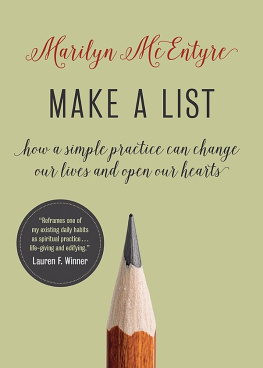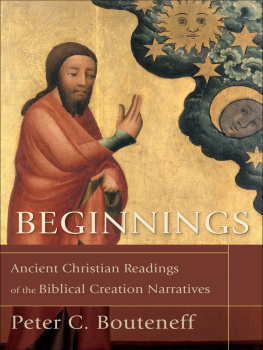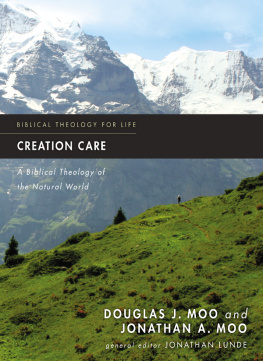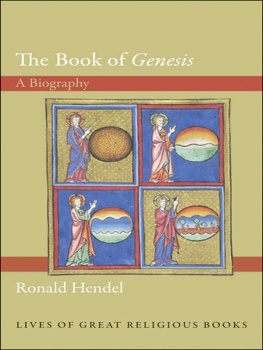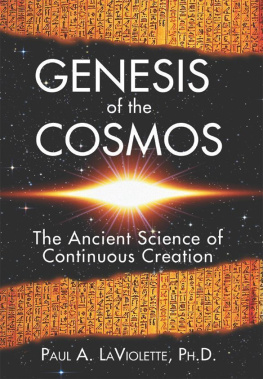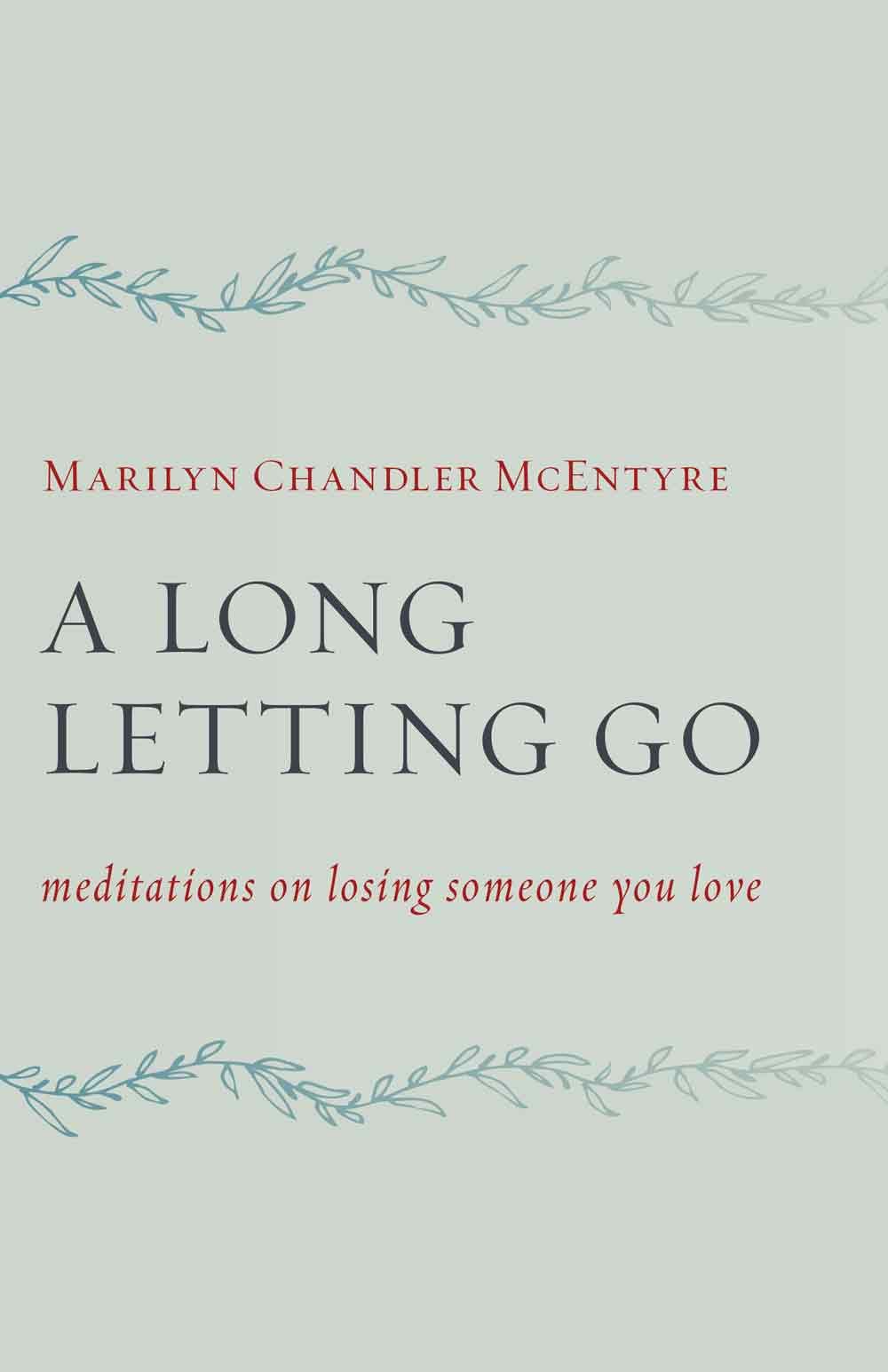Marilyn Chandler McEntyre
A Long Letting Go
Meditations on Losing Someone You Love
William B. Eerdmans Publishing Company
Grand Rapids, Michigan / Cambridge, U.K.
2015 Marilyn Chandler McEntyre
All rights reserved
Published 2015 by
Wm. B. Eerdmans Publishing Co.
2140 Oak Industrial Drive N.E., Grand Rapids, Michigan 49505 /
P.O. Box 163, Cambridge CB3 9PU U.K.
Printed in the United States of America
Library of Congress Cataloging-in-Publication Data
McEntyre, Marilyn Chandler, 1949
A long letting go: meditations on losing someone you love /
Marilyn Chandler McEntyre.
pages cm
ISBN 978-0-8028-7310-1 (pbk.: alk. paper)
ISBN 978-1-4674-4401-9 (ePub)
ISBN 978-1-4674-4361-6 (Kindle)
1. Caregivers Religious life Meditations. 2. Loss (Psychology)
Religious aspects Christianity Meditations. 3. Death Religious aspects Christianity Meditations. 4. Bereavement Meditations. I. Title.
BV4910.9.M34 2015
242.4 dc23
2015009845
www.eerdmans.com
In memory of my mother, Mary,
who taught me to care by caring, with generosity and grace,
for the many she watched through their final days.
And for John,
who has walked the hard last mile with others,
and may, someday, with me.
And for our children including the one who is gone
whose lives shape and enrich our own.
Contents
Witnessing:
Stories of Letting Go
At some point in our lives, most of us will become caregivers. It is a vocation that can last for a few weeks of recovery time or for a long period of chronic illness or disability, and it will involve us intimately in anothers preparation for death. For us, too, it is preparation for a letting go that draws upon our deepest spiritual resources in ways impossible to fully anticipate.
This gathering of reflections for caregivers focuses on the season of death and the strenuous, challenging, life-changing work of accompanying a beloved friend or family member on the final stretch of his or her journey and of mourning the losses that come at every stage. The reflections are rooted in my own experience of caring for family members who have died, keeping deathwatch with friends in times of loss, and serving as a hospice volunteer humbling work that leaves me, after every visit and vigil, feeling privileged to be permitted into others sacred time and space.
These pieces are written primarily for those who believe in Christ and his promises, but they may also serve others who come from other faith communities or from none who happen upon them when life presents them with the task of caregiving. They are meant not as advice, nor as theological statement, but simply as a harvest of experiences and reflections that may provide some direction, hope, or consolation in a time when generosity, imagination, patience, and love may be stretched in unprecedented ways.
The first section, Accompanying, focuses on various ways in which both the person who is dying and the person called to be present during that process may find themselves challenged, surprised, and invited into new understandings of faith and faithfulness.
The second section, Stories of Letting Go, offers a handful of short stories from the bedside that illumine moments of learning how to let go and how to receive the grace that is given in just such times.
The third section, Mourning, focuses on the work of mourning, which, like caregiving, may be more complex, surprising, and paradoxically life-giving than one imagines beforehand.
The fourth section, Words for Keeping Watch, offers prayers that might serve not only to articulate longings and needs that arise as one keeps watch but also as grounding points for the diffuse feelings and thoughts that arise in the course of a long letting go.
May you who are called in these moments of your life to confer a final blessing find some blessing here.
Accompanying
Setting the House in Order
In those days Hezekiah became sick and was at the point of death. And Isaiah the prophet the son of Amoz came to him and said to him, Thus says the L ord , Set your house in order, for you shall die; you shall not recover.
2 Kings 20:1
Isaiahs task wasnt easy. Delivering bad news never is. For one thing, its not always clear when to do so. Though doctors are more likely now than a few decades ago to deliver terminal prognoses frankly, family members and friends still have the delicate task of discerning when and how to help a beloved one come to terms with death. Especially when there is significant unfinished business, knowing that recovery is highly unlikely allows for re-orientation, reconciliation, and practical and spiritual preparation. But, especially now, when medical interventions can continue long beyond the borders of reasonable hope, denial can persist beyond where it is useful, and foreclose the precious conversations with self and others that often happen in the final days.
Denial is a powerful and sometimes necessary psychological tool. Sometimes hard truths need to be postponed. Medical ethics boards have had many an argument about when and whether to deliver the stark message that Isaiah delivers to Hezekiah. As it happens, Hezekiah did recover, but the prophets words served a purpose beyond what he evidently recognized. You shall die is a hard pronouncement, but it can be a liberating one if it can be offered and understood as a calling.
Even dying is a calling. For some it is a time to give and receive forgiveness. For some it is a time to recall and claim the reassurances that faith provides. For some it is a time to see visions and dream dreams. Some need companionship; some, solitude. Some sleep, some remain wakeful, and some toss, restless and uneasy, between the two, enduring their going hence as infants endure the discomfort of the birth canal.
The companionship we can offer those of us who keep vigil needs to begin with discernment, a humble seeking of the call of the moment. Is this a time to speak, or a time to open and guard a spacious silence? Is it a time to invoke Gods protection, Jesus consolation, and the Spirits guidance, or a time to tell stories that reaffirm the goodness of this life, now ending, so that the person dying may leave it with gratitude? Is it a time to share the burden of sorrow, or a time to postpone lament to protect serenity? Is it a time to come, like Isaiah, with a clear, practical, challenging word of truth, or a time to allow for the weakness we share as humans who, as T. S. Eliot said, cannot bear very much reality?
Discernment is prayerful work: Help me notice what is needed. Help me to lay aside my own besetting anguish and be available for that need. Help me recognize that anothers need may be very different from my own. Help me, as I watch, to stay awake to the changes that come about in this mysterious process and respond to them generously, patiently, and selflessly. Help me open my own heart to receive the grace I need to respond to the demands of this day. Help me to recognize both the work of dying and the work of watching as honorable and sacred tasks.
Hospice volunteers who keep vigil at the bedsides of dying patients are warned when they are trained that they may be asked to leave before the final hour, to allow the family privacy for the last good-byes. However connected they may feel to the person dying, they may not have the closure of witnessing the final breath or speaking the final word of reassurance. And sometimes no one gets that closure. Many who are dying seem to wait until all witnesses even the most dearly loved are out of the room to release their final breath. Dying has its own kinds of diplomacy.


